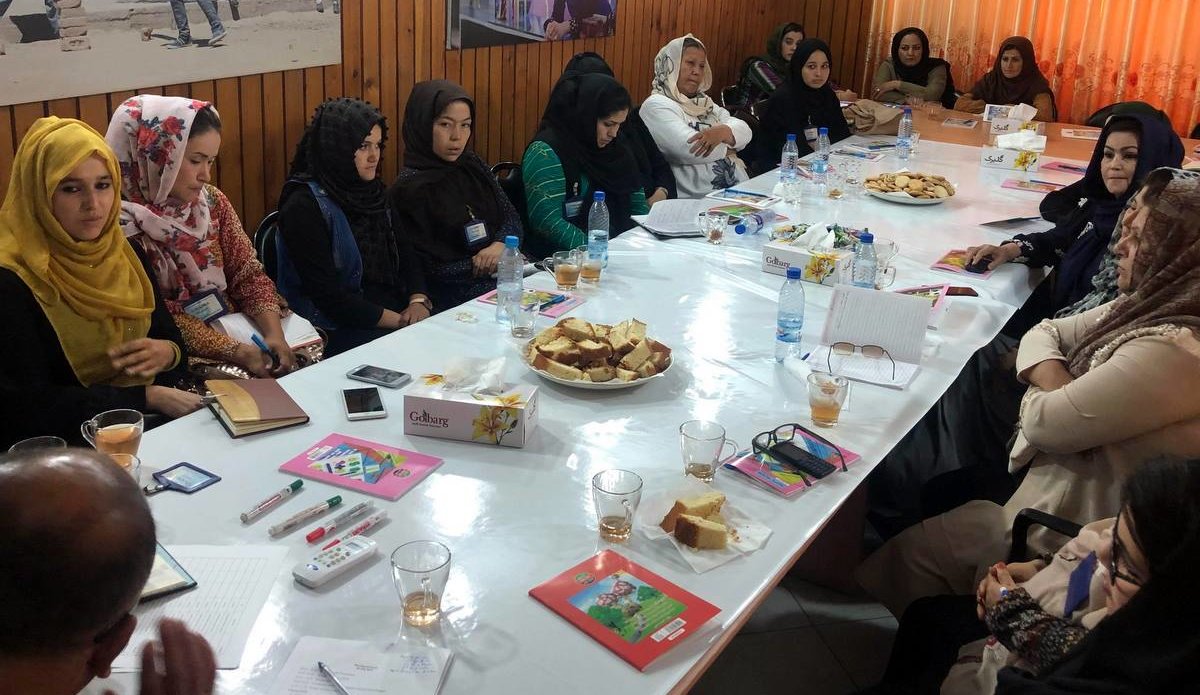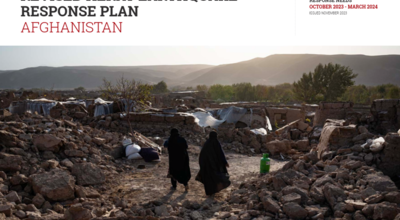Women’s social and political empowerment the focus of Baghlan symposium
PUL-E-KHUMRI - Women’s participation in Afghanistan’s development planning and political processes is crucial for advancing the country toward stability and prosperity, said participants at a UN-backed event in Afghanistan’s north-eastern province of Baghlan.
During the discussion, which is part of the ‘Mothers of Peace’ series of events supported by UNAMA’s Pul-e-Khumri field office, participants gathered from six districts across Baghlan to strategize on measures to make women’s empowerment consistent, deliberate and long-term.
Khadija Yaqeen, director of Baghlan’s Women’s Affairs Department, encouraged all women, including those present, to take part in Afghanistan’s democratic processes. “The government has a responsibility to provide equal opportunity for women to exercise their rights,” she stressed.
Zuhal Saifi, a gender adviser in the governor’s office, pointed out that the government has an obligation to fulfil its commitment to empower women by increasing women’s representation in ministries and in in other civil service jobs across the province.
Haleema Wardak, a journalist, stressed importance of gender equality in all public institutions. “Despite the presence of qualified women in the province, no woman has so far been recruited to key positions in local government institutions,” she noted.
Throughout the lively discussion, other participants offered similar perspectives, stressing that women’s participation at every level of Afghanistan’s social and political life is consistent with the country’s constitution, its religious values and its development priorities.
The event concluded with participants resolving to work toward empowering women in their communities and encouraging them to play a more active role in Afghanistan’s political and developmental spheres, including in any peace efforts.
Afghanistan became a member state of the United Nations in 1946 and signed the United Nations Charter, agreeing to the precepts of promoting and encouraging respect for human rights and for fundamental freedoms for all, without distinction as to race, sex, language or religion.
Afghanistan is a signatory to seven out of nine core international human rights treaties, including the Convention on the Elimination of All Forms of Discrimination Against Women. This convention, which obliges Afghanistan to ensure that women are not discriminated against in any sphere of life, is reflected in Afghanistan’s constitution, national laws and policies.
While the government has taken steps to improve women’s participation in public processes through legislation, many factors continue to undermine these efforts. The Afghan government has pledged to increase the presence of women in government institutions to 30 per cent by the year 2020. Currently, women’s participation countrywide is far below this target.
The Baghlan event was supported by UNAMA’s Pul-e-Khumri field office as part of a countrywide outreach programme aimed at creating platforms – using radio, television and social media – where Afghans can engage in dialogue and discuss issues affecting their communities.
At almost every UNAMA-backed event, local media partners not only record the discussion and debate for later rebroadcast, but also create new programmes around the issues that are raised, extending the discussion and creating new opportunities for local voices to be heard on issues such as peace, reconciliation, government transparency, human rights and rule of law.
UNAMA supports the Afghan people and government to achieve peace and stability. In accordance with its mandate as a political mission, UNAMA backs conflict prevention and resolution, promoting inclusion and social cohesion, as well as strengthening regional cooperation. The Mission supports effective governance, promoting national ownership and accountable institutions that are built on respect for human rights.
 UN
UN








